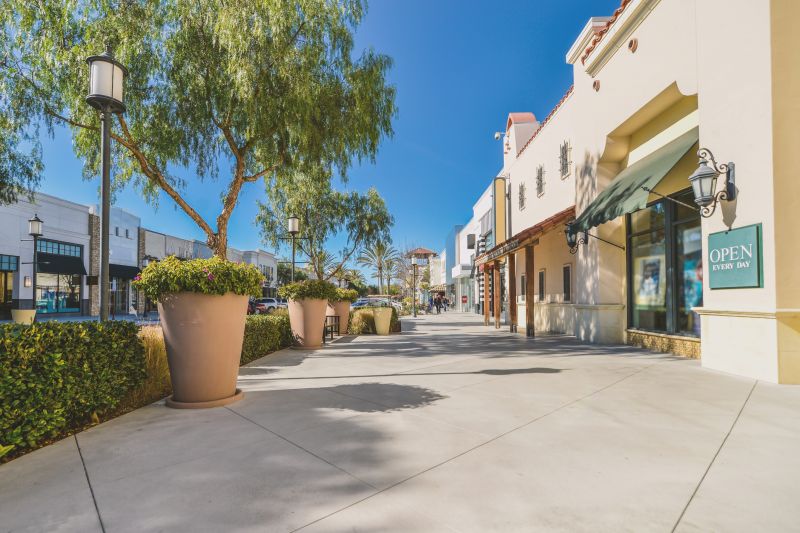Ultimate Selection Of Concrete Repair Products For Professionals
Access the most trusted products used by experts to achieve seamless and durable concrete fixes.
 Concrete repairs are a common necessity in maintaining the integrity and appearance of various structures, from residential driveways to commercial foundations. Selecting the appropriate products for concrete repair involves understanding the different types of materials available and their specific applications. These products can help address issues such as cracks, surface deterioration, and structural weaknesses, ensuring the longevity of concrete surfaces. Proper application and choosing suitable repair materials are essential for achieving durable and effective results.
Concrete repairs are a common necessity in maintaining the integrity and appearance of various structures, from residential driveways to commercial foundations. Selecting the appropriate products for concrete repair involves understanding the different types of materials available and their specific applications. These products can help address issues such as cracks, surface deterioration, and structural weaknesses, ensuring the longevity of concrete surfaces. Proper application and choosing suitable repair materials are essential for achieving durable and effective results.
Top Overall Option
Polymer-Modified Concrete Patch
A versatile polymer-modified concrete patch offers excellent adhesion and flexibility, making it suitable for a variety of repair scenarios. Its ease of application and ability to bond well with existing concrete surfaces help create durable repairs that can accommodate minor movement without cracking. This type of product is often used for filling cracks, patching surface defects, and restoring structural integrity. Its compatibility with different concrete types and weather conditions makes it a reliable choice for many repair projects in Billings, MT.
Types of Products For Concrete Repairs
Concrete Crack Sealants
Designed to fill and seal cracks, these products help prevent water ingress and further deterioration.
Hydraulic Cement
Quick-setting cement used for stopping leaks and repairing structural cracks in concrete.
Polymer Patching Compounds
Flexible and adhesive-rich compounds suitable for patching surface defects and cracks.
Surface Restorers
Products that restore the appearance and surface integrity of worn or damaged concrete.
Epoxy Resins
High-strength adhesives used for structural repairs and bonding new concrete to old.
Self-Leveling Underlayments
Smooth and level uneven concrete surfaces before finishing or overlaying.
Concrete Resurfacing Skins
Thin overlays that improve surface appearance and durability.
Waterproofing Sealants
Protective coatings that prevent water penetration and damage.
Bonding Agents
Primers that enhance adhesion between old and new concrete layers.
Fiber-Reinforced Repair Mortars
Mortars embedded with fibers for added strength and crack resistance.
Polyurethane Foam Sealants
Expandable sealants used for filling larger voids and cracks.
Concrete Densifiers
Chemical treatments that harden and densify porous concrete surfaces.
Patch Mixes for Large Areas
Pre-mixed repair materials suitable for extensive surface repairs.
Rapid-Set Repair Products
Products that cure quickly, minimizing downtime for repairs.
Flexible Sealants
Sealants that accommodate slight movements without cracking.
Anti-Corrosion Coatings
Protective coatings that prevent steel reinforcement corrosion within concrete.
Popular Choices
Widely used for sealing small to medium cracks and preventing water intrusion.
Commonly chosen for quick repairs of structural cracks and leaks.
Popular for restoring structural integrity in cracked concrete elements.
Flexible sealants preferred for dynamic cracks and expansion joints.
Used for improving surface appearance and extending concrete lifespan.
Frequently selected for waterproofing basement walls and foundations.
Commonly applied for leveling uneven concrete floors.
Popular for attaching new concrete patches to existing surfaces.
Chosen for filling larger voids and structural repairs.
Preferred for high-strength surface repairs.
Favored for urgent repairs requiring rapid curing.
Often used to strengthen and harden porous surfaces.
Popular for sealing joints and surface cracks.
Common for maintaining joint integrity in concrete slabs.
Chosen to protect embedded steel reinforcements.
In Billings, Montana, where weather conditions can impact concrete durability, it's especially important to select products that can withstand temperature fluctuations and moisture exposure. Whether dealing with small cracks or larger surface repairs, there are numerous options designed to suit different repair needs. From quick-setting compounds to flexible sealants, the range of products allows for tailored solutions that match the scope of each repair project.
Using the right concrete repair products can also help prevent further damage by providing a protective barrier and restoring the surface's structural integrity. Preparation is key; cleaning the area thoroughly and following manufacturer instructions ensures optimal adhesion and performance. Regular maintenance with appropriate repair products can extend the lifespan of concrete surfaces, saving time and money in the long run. Consulting local suppliers or professionals familiar with Montana's climate can further aid in selecting the most suitable solutions for specific repair challenges.
Key Buying Considerations
- Identify the specific type and extent of damage to determine suitable repair products.
- Consider the weather conditions in Billings, MT, which can affect curing and adhesion.
- Select products compatible with existing concrete and the repair environment.
- Determine whether a quick-setting or slow-curing product is appropriate for your schedule.
- Evaluate the flexibility of the repair material to accommodate concrete movement.
- Check for waterproofing or moisture-resistant features if repairs are exposed to water or humidity.
- Assess the ease of application, especially if DIY repair is intended.
- Review the curing time to ensure minimal disruption to use or access.
- Consider the durability and longevity of the repair product for long-term performance.
- Look for products with good adhesion properties to ensure a strong bond.
- Ensure the repair material is suitable for structural or surface repairs as needed.
- Verify compatibility with any existing sealants or coatings on the surface.
- Examine the recommended surface preparation procedures to achieve optimal results.
- Consider the environmental conditions during application, such as temperature and humidity.
- Budget appropriately, balancing cost with the expected lifespan and performance of the repair.
